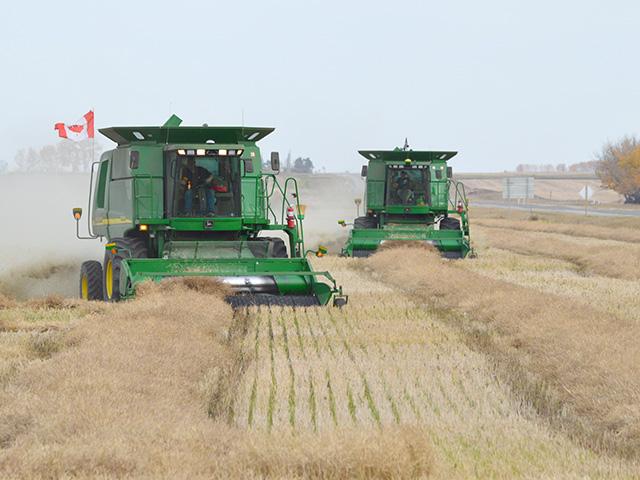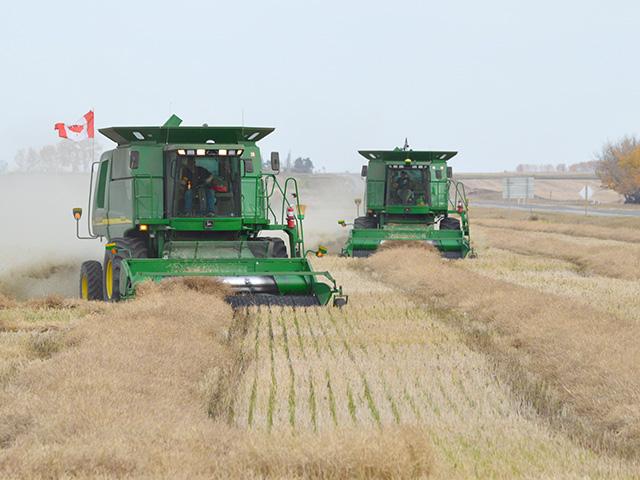Canada Markets
A Parting Blog and Reflections on 12 Years With DTN
For various reasons, I would like to share my reflections on my time at DTN and changes to the agriculture industry.
After almost 12 years, I have made the decision to leave DTN employment. During those years, I had been given an amazing opportunity to work alongside a highly skilled and dedicated team in deciphering global news and weather at DTN while focusing on markets that matter for the benefit of grain producers, end users and other users of this information.
I've enjoyed the ability to keep our newsroom group abreast of issues within the Canadian industry, while the sheer size of the row crop industry in the U.S. was perhaps one of the biggest eye-openers for me. At the same time, our respective industries face similar challenges with competing nations eager to displace our respective share of global trade.
One obvious change in the industry is the growth of available information. One internet study, posted by Statista.com in November 2023, showed the amount of data created, consumed or stored on the internet at 6.5 zettabytes in 2012. It is estimated to be 147 zettabytes in 2024 and grow at a compound rate of 23% from 2021 to 2025. In a world with a great deal of "noise," the need to separate the wheat from the chaff is ever-growing.
P[L1] D[0x0] M[300x250] OOP[F] ADUNIT[] T[]
Along with this explosion in information, market moves are often exaggerated by the speculative trade and in part by Watson, a term used by a former DTN analyst to describe the sum total of all algorithm trade, while we are undoubtedly facing the integration of trade generated by artificial intelligence. The need for unbiased sources of information such as DTN has never been greater.
I started with DTN as the Canadian grains analyst in spring 2012, just months before the end of the Canadian Wheat Board's monopoly on the export sales of wheat, durum and barley. This event was marked by a gathering of producers and dignitaries, including Canada's then-Prime Minister Stephen Harper, at a Kindersley, Saskatchewan, grain farm within a half-hour drive of the farm where I grew up.
Changes within the industry since then are too numerous to list, positive and negative. Most recently, it seems like the time between black swan events is shrinking, with the recent pandemic and Russia's invasion of Ukraine coming to mind, while the need to manage increasing risks only continues to grow. Farmers around the world are forced to fight back to preserve their way of life while right here at home, the industry is not at all immune to the external pressures that seek to force change on how food is both produced and consumed.
Another reason for reflection is tied to the recent decision to sell our family farm in western Saskatchewan which will consume my focus and energy in the near future. The oldest quarter section was purchased by my grandfather in 1927, just a few short years after immigrating to Canada with only a few dollars in his wallet. While a difficult and emotional decision, we will always remember him telling us that "you can't take it with you" and are thrilled with the idea of the land falling into the hands of younger farmers who are key to the rural economy.
With that, thanks go to readers over the years for comments and inquiries made. I thank DTN staff for their support, including the editors who guided this nonwriter who spelled certain words differently and talked Canadian, eh? My fellow analysts have never ceased to amaze me with a perfect mix of early birds looking at overnight events and writing at 4 a.m. and night owls sharing information as late as midnight, covering the largest share of the 24-hour news cycle.
I wish producers the best in the upcoming growing season and best of luck in reading the signals that the market is sending.
Cliff Jamieson can be reached at cliff.jamieson@dtn.com
Follow him on social platform X @ cliffjamieson
(c) Copyright 2024 DTN, LLC. All rights reserved.





Comments
To comment, please Log In or Join our Community .